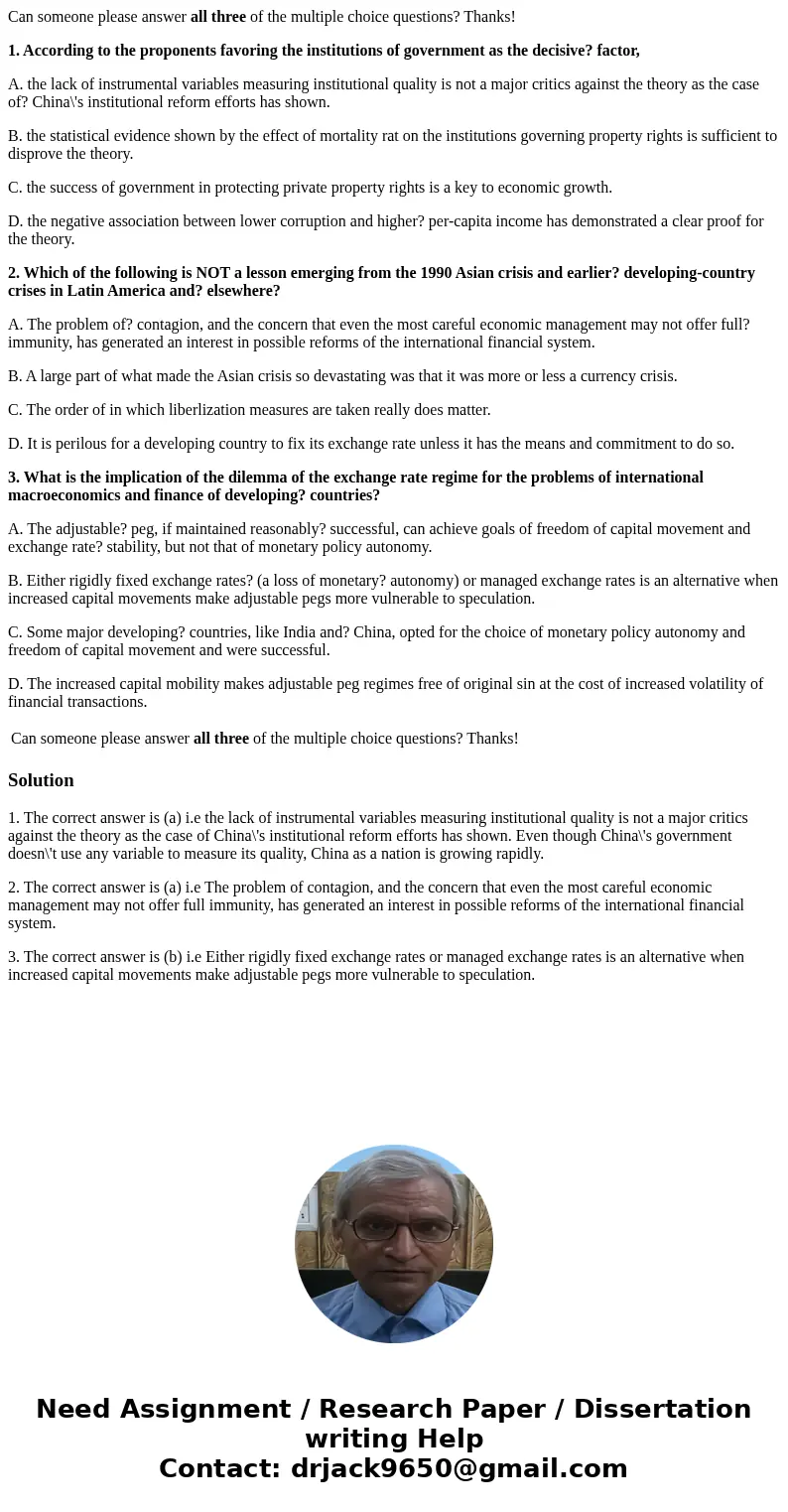Can someone please answer all three of the multiple choice q
Can someone please answer all three of the multiple choice questions? Thanks!
1. According to the proponents favoring the institutions of government as the decisive? factor,
A. the lack of instrumental variables measuring institutional quality is not a major critics against the theory as the case of? China\'s institutional reform efforts has shown.
B. the statistical evidence shown by the effect of mortality rat on the institutions governing property rights is sufficient to disprove the theory.
C. the success of government in protecting private property rights is a key to economic growth.
D. the negative association between lower corruption and higher? per-capita income has demonstrated a clear proof for the theory.
2. Which of the following is NOT a lesson emerging from the 1990 Asian crisis and earlier? developing-country crises in Latin America and? elsewhere?
A. The problem of? contagion, and the concern that even the most careful economic management may not offer full? immunity, has generated an interest in possible reforms of the international financial system.
B. A large part of what made the Asian crisis so devastating was that it was more or less a currency crisis.
C. The order of in which liberlization measures are taken really does matter.
D. It is perilous for a developing country to fix its exchange rate unless it has the means and commitment to do so.
3. What is the implication of the dilemma of the exchange rate regime for the problems of international macroeconomics and finance of developing? countries?
A. The adjustable? peg, if maintained reasonably? successful, can achieve goals of freedom of capital movement and exchange rate? stability, but not that of monetary policy autonomy.
B. Either rigidly fixed exchange rates? (a loss of monetary? autonomy) or managed exchange rates is an alternative when increased capital movements make adjustable pegs more vulnerable to speculation.
C. Some major developing? countries, like India and? China, opted for the choice of monetary policy autonomy and freedom of capital movement and were successful.
D. The increased capital mobility makes adjustable peg regimes free of original sin at the cost of increased volatility of financial transactions.
| Can someone please answer all three of the multiple choice questions? Thanks! |
Solution
1. The correct answer is (a) i.e the lack of instrumental variables measuring institutional quality is not a major critics against the theory as the case of China\'s institutional reform efforts has shown. Even though China\'s government doesn\'t use any variable to measure its quality, China as a nation is growing rapidly.
2. The correct answer is (a) i.e The problem of contagion, and the concern that even the most careful economic management may not offer full immunity, has generated an interest in possible reforms of the international financial system.
3. The correct answer is (b) i.e Either rigidly fixed exchange rates or managed exchange rates is an alternative when increased capital movements make adjustable pegs more vulnerable to speculation.

 Homework Sourse
Homework Sourse